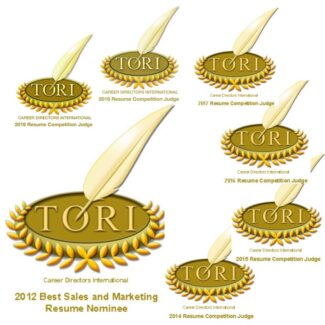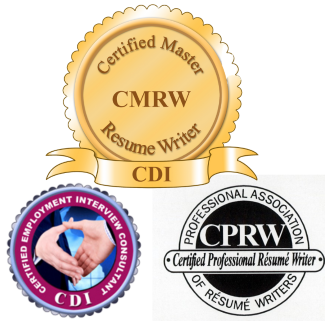As a member of the Career Collective blogging community of resume writers and career coaches, this post is one of many this month offering advice for career changers. I encourage you to visit other members’ responses linked at the end of my post and follow our hashtag on Twitter all month long: #careercollective.
Depending on your perspective and personal experience, changing careers can be exhilarating and rewarding or it stressful and feel downright nearly impossible.
I’ve changed careers twice myself, with much planning, research, and self-analysis, and as a careers professional, I’ve also had the pleasure of working with many career changers. Two recent clients who come to mind include a pension manager who returned to school and is now working as a paralegal and a substitute teacher and part-time real estate agent who became a corporate trainer. What these two clients share is that they researched and thought through their moves and worked hard to achieve their goals.
Culled from client work and personal experience, the following are my top 10 recommendations, the 10 commandments for career changers, if you will:
- Know your skills. Identify your value, your strengths, your transferrable skills to an employer. Be able to give examples that you can pitch and sell during an interview. Consider technical skills as well as soft skills, which can be just as important, and often times harder to teach than technical skills.
- Know what is realistic. Some transitions are based in logic – a teacher transitioning to a corporate training role. An MD switching to a research or sales role within the pharmaceutical industry. A franchise operator looking to become a Mergers & Acquisitions Associate, not so much (at least without returning for an MBA). Please be realistic as to what jump you can expect to make, especially without going back to school.
- Know it may require stepping stones to land in your target job. Rome wasn’t built in a day. It’s a cliche, but it’s true. The path from A to B may need to include accepting a transitional or potentially more junior role. Don’t necessarily consider that a bad thing, either. Stepping stone roles allow you to begin gaining industry experience and contacts. To some degree, you will need to prove yourself in your newly chosen field. Don’t take it personally, but do recognize it as a required part of the process.
- Know your story. Be prepared for your interviews and networking conversations. Realize that nearly everyone is going to ask why you’re looking to switch careers. Take the time early on to develop and practice your answers and your story behind the “why?”
- Know when it’s necessary to return to school. Certain fields require certifications or specific training or schooling. It has nothing to do with you personally, it’s merely a function of that industry. (I’m thinking back to my client who returned to school to earn her paralegal certificate.) If you find you need to return to school, plan out the “how, when, and where” ahead of time. Can you attend part-time or at night while you continue working in your current field? Make sure you have a plan and a back-up contingency before you dive back into school. Working full-time and going to school full-time is the equivalent of two full-time jobs. Make sure your plan is doable.
- Know that internships or volunteer work provides valuable experience. As you build your new resume, gaining experience in your new field is paramount. It may be easier or more accessible for you to gain that experience through a paid or unpaid internship or through volunteer work. Think out of the box on this one. Offer your services to a company or a non-profit on a project or part-time basis. It’s a win-win for both sides.
- Know that networking is critical. Gaining relevant professional experience and developing contacts in your new field are the most critical factors for success. Network with anyone and everyone you know to see who they know in your chosen new field as well as identify a list of target companies in which you’d like to make contacts.You can gain invaluable research by conducting informational interviewing. Be careful not to just “collect names” — nurture your network as a member of your network may be the person who helps you get your foot in the door.
- Know the difference between changing functions and industries. If you’re a senior accountant working for a manufacturing company, your function is accounting and your industry is manufacturing. Is the source of your unhappiness your function (accounting) or your industry (manufacturing)? In this example, switching industries but remaining in the same function (accounting) will probably be easier than switching your function within manufacturing. It’s critical to identify the source of your frustration. Could a new environment improve things? Or is it truly what you’re doing on a daily basis? Attempting to switch both your function and your industry at once may prove challenging and most likely frustrating. I strongly advise switching one or the other first.
- Know when it’s time to work with a professional. Changing careers is one of the top reasons people consider working with a professional resume writer, career coach, interview coach, or job search coach. There are two ways to approach this: you may want to start off on the right foot with a strategically assembled team of experts or you may want to give it a go on your own for a period of time before deciding to invest in a career professional. Either way, this may be an ideal time to partner with a professional to help you achieve your career goals.
- Know that following your passion is worth the effort. Don’t give up. It may not happen in a week, a month, or even a year, but if you’ve identified the field in which you want to work, you owe it to yourself to pursue it. It’s a great thing when you love what you do every day. It no longer feels like work!
Read below for more valuable advice on changing careers from my esteemed colleagues in the Career Collective:
Are You Ready for a Career Change? @Debra Wheatman
Changing Careers? Ask yourself these questions. @erinkennedycprw
Changing Careers: Not for the Fainthearted, @GayleHoward
Career Change Isn’t An Exact Science, @careersherpa
The 10-Step Plan to Career Change, @KatCareerGal
When it’s Time to Recycle Your Career, @WalterAkana
Best Career Change Advice: Target & Plan, @JobHuntOrg
How social media can help you change careers, @keppie_careers
Expat Careers: You Are Not Your Job Title, @expatcoachmegan
Changing The Direction Of Your Career, @EliteResumes @MartinBuckland
Career Changer: Can You Quell Bottom-line Ache? @ValueIntoWords
Top 3 + 1 Tips for Making a Successful Career Change, @KCCareerCoach
Changing Careers: Look Before You Leap, @barbarasafani
Is Career Change for You?, @WorkWithIllness


[…] 10 Commandments for Career Changers, @LaurieBerenson […]